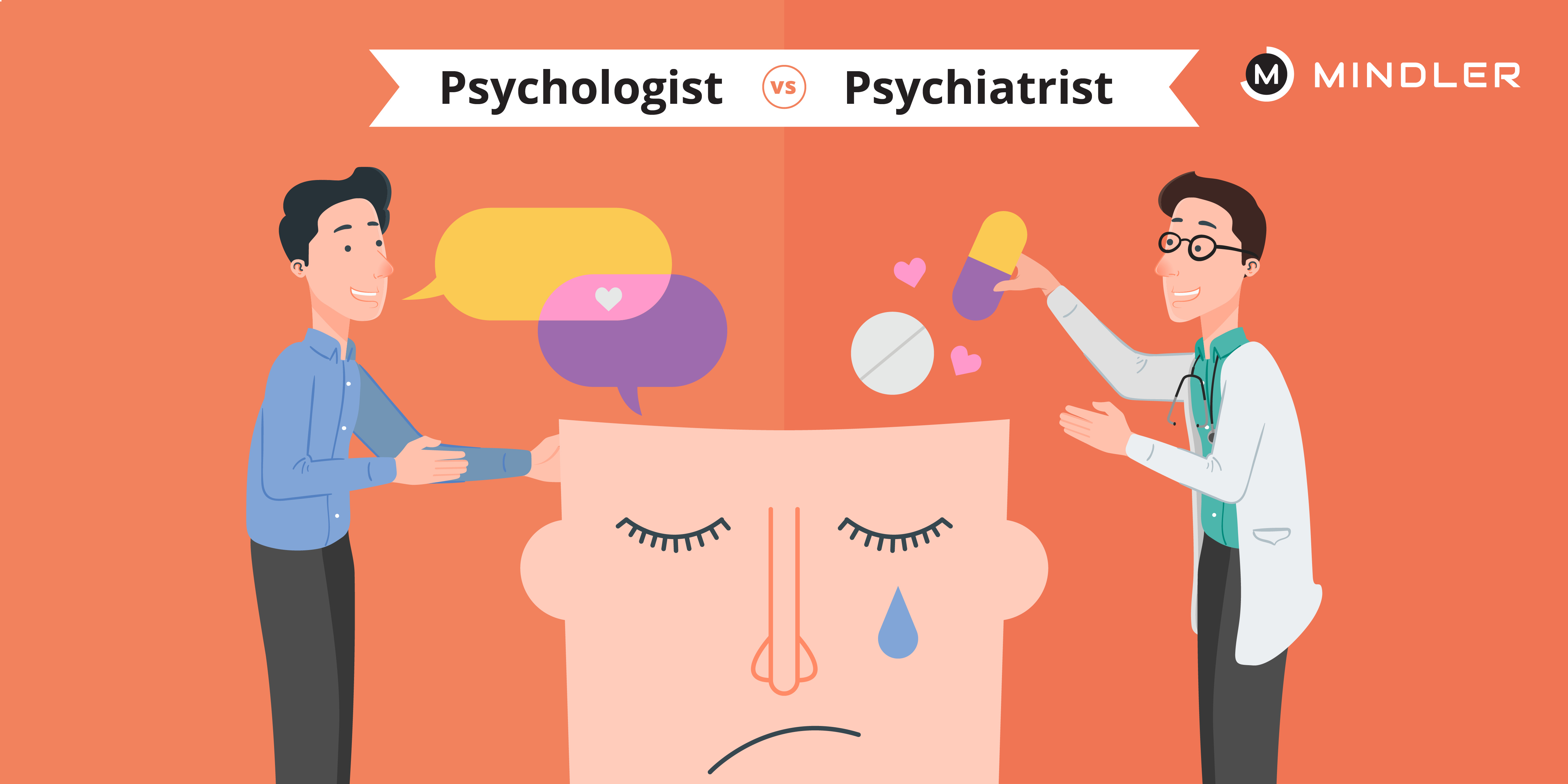Psych Treatment: A Comprehensive Overview to Techniques and Results

Cognitive-Behavioral Therapy
Cognitive-Behavioral Treatment (CBT) is a commonly made use of psychotherapeutic strategy that focuses on identifying and customizing useless thinking and behavior patterns. Created in the 1960s by Aaron T. Beck, CBT integrates cognitive and behavior concepts to attend to numerous mental wellness problems, consisting of anxiety, anxiety, and stress-related problems. The property of CBT is that maladaptive ideas contribute to emotional distress and maladaptive actions. By reorganizing these ideas, individuals can accomplish substantial improvements in their psychological wellness and daily functioning.
CBT is identified by its organized, ambitious nature. Therapy usually involves a collaborative process between the therapist and customer, where specific troubles are determined, and sensible techniques are established to resolve them. Techniques such as cognitive restructuring, exposure therapy, and skill-building exercises are frequently utilized. Cognitive restructuring includes difficult and changing unfavorable idea patterns, while exposure therapy intends to lower anxiety and anxiousness via progressive exposure to feared scenarios or objects.
Evidence-based research sustains the effectiveness of CBT for a variety of psychological problems - Best Psychologist in Delhi. Its emphasis on skill procurement and self-help methods empowers customers to proceed progression independently after treatment ends. The versatility and effectiveness of CBT have actually made it a foundation in contemporary psychotherapeutic technique
Psychodynamic Techniques
Rooted in the early theories of Sigmund Freud, psychodynamic approaches concentrate on discovering the unconscious mind and its impact on habits and feelings. These approaches intend to uncover hidden ideas and feelings that might be driving maladaptive habits and emotional distress. Central to this method is the idea of inner dispute, typically stemming from unsolved previous experiences, particularly those from youth.
Therapists using psychodynamic techniques utilize numerous crucial techniques, consisting of free organization, where individuals are urged to talk openly to disclose subconscious material, and dream evaluation, which analyzes the unexposed web content of desires. Additionally, the expedition of transfer and countertransference characteristics within the restorative relationship is vital. These communications can offer understandings into the person's internal globe and relational patterns.
Psychodynamic treatment is normally longer-term compared to other modalities, using a deep and extensive understanding of the person's psyche. Study suggests that it can be specifically reliable for complex mental health issues, such as character problems and persistent clinical depression. By promoting self-awareness and psychological understanding, psychodynamic treatment looks for to bring unconscious material to consciousness, allowing people to attain lasting and significant adjustment in their lives.
Humanistic Methods
Building on the structures laid by psychodynamic approaches, humanistic techniques offer a distinct perspective concentrated on individual potential and self-actualization. Originating in the mid-20th century, these methods prioritize the fundamental goodness and growth potential of people, highlighting an all natural sight of human experience. Key numbers such as Carl Rogers and Abraham Maslow have actually significantly affected this therapeutic strategy, which includes approaches like client-centered treatment and Gestalt therapy.
Client-centered therapy, developed by Rogers, plays a critical function in humanistic strategies. The specialist's duty is even more of a facilitator than an authority, motivating customers to harness their inner resources for recovery.
Gestalt treatment, one more crucial humanistic method, highlights existing minute awareness and the assimilation of body and mind. By concentrating on the "present moment," clients obtain greater insight right into their current feelings and actions. Strategies such as role-playing and led visualization are typically used to assist clients obtain a deeper understanding of themselves, eventually resulting in boosted self-awareness and gratification.
Integrative Treatments
Integrative treatments represent a synthesis of numerous restorative methods tailored go to this web-site to fulfill the one-of-a-kind needs of each customer. This technique recognizes the complexity of human psychology and the multifaceted nature of mental health and wellness issues. By integrating aspects from different schools of psychotherapy-- such as cognitive-behavioral treatment (CBT), psychodynamic treatment, and humanistic techniques-- integrative treatments offer an even more flexible and all natural therapy standard.
Practitioners of integrative therapy analyze each customer's specific needs, signs and symptoms, and individual history to develop a customized treatment plan. This customized method boosts the capacity for therapeutic success by addressing the source of psychological distress and advertising total wellness. Techniques may consist of mindfulness workouts, cognitive restructuring, and psychological processing, each picked to target different aspects of the client's problems.
Additionally, integrative therapies stress the healing partnership, seeing the client-therapist bond as an important part of effective therapy. This relationship cultivates a helpful environment where customers feel risk-free to check out and address their problems. The adaptability of integrative treatments makes them ideal for a broad series of problems, consisting of anxiety, clinical depression, trauma, and interpersonal problems, consequently enhancing their applicability and performance in diverse scientific setups.

Determining Therapy Outcomes
Assessing the effectiveness of psychiatric therapy is crucial for both clinicians and clients to make sure that the therapy is yielding the preferred results. To achieve this, different techniques and tools are employed to measure therapy outcomes methodically. Standard evaluation tools, such as the Beck Depression Stock (BDI) and the Generalized Stress And Anxiety Condition 7 (GAD-7), offer measurable information on symptom severity and adjustments with time.
In addition to standard devices, qualitative approaches like client self-reports and professional meetings provide beneficial understandings into the personal experiences and regarded development of customers. Frequently scheduled assessments, normally at the start, omphalos, and end of treatment, aid in tracking the trajectory of renovation or recognizing locations requiring change.
End result dimension is not restricted to sign decrease; it also includes functional improvements in every day life, such as better social connections, increased work efficiency, and enhanced total wellness. Modern advancements in digital health have introduced mobile applications and on-line platforms that promote real-time surveillance and responses, additionally fine-tuning the evaluation process.
Ultimately, a comprehensive approach to gauging treatment results makes certain that therapeutic interventions work, reliable, and why not try here customized to meet the private requirements of customers, thus optimizing the overall therapeutic experience.
Final Thought
Psychiatric therapy supplies a multifaceted range of methods focused on addressing specific you can check here psychological health and wellness issues and enhancing total health. Cognitive-Behavioral Treatment and psychodynamic strategies target dysfunctional thoughts and unconscious impacts, specifically. Humanistic techniques concentrate on personal development and self-actualization, while integrative treatments integrate several approaches for customized treatment strategies. Evaluating treatment outcomes with standard evaluations and qualitative approaches guarantees a comprehensive understanding of effectiveness, ultimately directing customers toward enduring mental health enhancements.
From the structured method of Cognitive-Behavioral Therapy (CBT) to the deep exploration of the unconscious in psychodynamic therapy, each approach brings special benefits. Its focus on ability acquisition and self-help strategies empowers clients to continue development separately after therapy wraps up (Best Psychologist in Delhi). Key numbers such as Carl Rogers and Abraham Maslow have dramatically influenced this therapeutic technique, which encompasses approaches like client-centered therapy and Gestalt treatment
